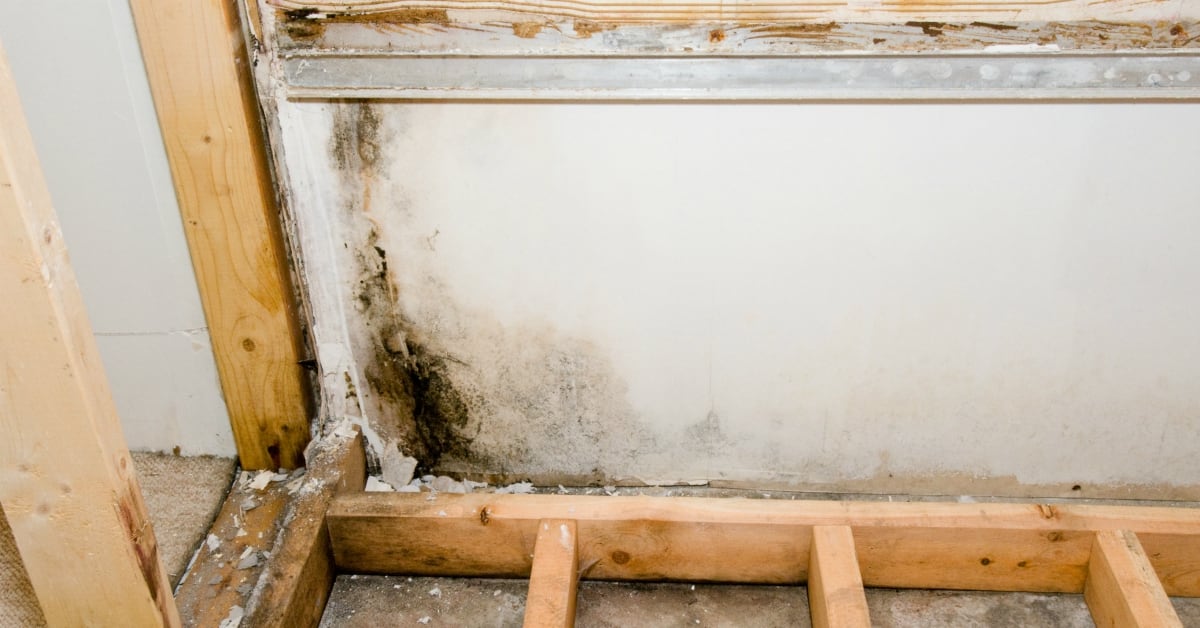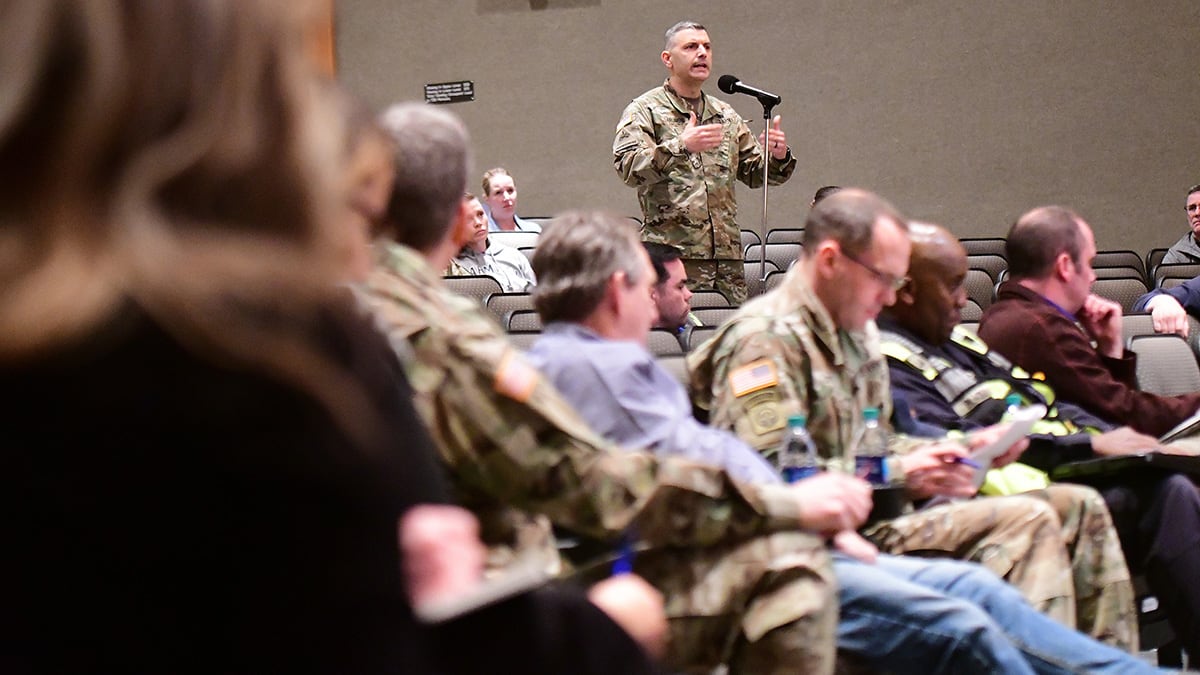As senators pressed senior military leaders on their plans and timelines to fix the systemic problems with military housing, some urged the leaders to pursue legal action against some privatized housing companies, during a hearing Thursday.
“I think there are clear indications of fraud. I would recommend these issues be referred to the Department of Justice,” said Sen. Richard Blumenthal, D-Conn., eliciting applause from military families in the room during the Armed Services Committee hearing.
“This is a risk-free cash cow. Very few landlords in the country have tenants who are obligated to pay for decades without any real accountability.”
The service secretaries said any allegations of fraud should be pursued. Navy Secretary Richard Spencer said an investigation is already under way with the Navy Audit Service. Once Navy Audit has the data, then the Department of Justice would be involved, he said. Air Force Secretary Heather Wilson said the Air Force Office of Special Investigations does the initial investigation and refers to the U.S. Attorney in the district where it’s involved. “We take all allegations or indication of fraud very seriously,” she said.
“I’d respectfully suggest this procedure ought to be expedited. . . I would respect your going directly to the [Justice Department] with this issue either to the civil division or the criminal division. If we really care about this issue, let’s recognize it for what it is….. at the end of the day, what they will respect … is the hammer of fair and effective law enforcement behind you,” Blumenthal said.
“We’re dealing with a problem that has festered for a long time.” He added he will be sending a formal letter to the service secretaries.
Sen. Gary Peters, D-Mich., showed pictures of black mold in the home of a Michigan native who is a soldier living at Fort Bragg, N.C., which has been recently deemed unlivable. It was also infested with termites. Then, Peters brought out a photo of a large dining room in the “incredible mansion on 100 acres” of the owner of the company that manages the Fort Bragg housing. “The landlord lives like this… these folks live like this, and these are our soldiers, sailors, airmen, Marines,” he said. The soldier’s husband told Peters he’d like to join the Army, but may not be able to now because of respiratory issues that may be due to the housing.
“I wholeheartedly apologize that [these families ] have to live in such despicable conditions. It’s unconscionable that that would happen,” said Army Secretary Mark Esper.
RELATED

Esper said the Army’s immediate priority is to complete all work orders that are related to life, safety and health issues; to staff up quality control on installations, to make sure there’s adequate customer service, and finalize the tenant’s bill of rights. The bill of rights, a joint effort of all the service secretaries, is expected to take about 90 days to finalize, as they consult with lawmakers, contractors and others. The service secretaries are also working on other joint efforts to address the issue.
Following a hearing Feb. 13 where military spouses testified about their problems with mold, termites and other issues, concerns about their families’ health and safety, and the inability to get their privatized housing manager to resolve the issues, the service secretaries ordered installation officials to contact residents through town halls, or other means, such as direct contact of every sailor and Marine to ask if they’d like leadership to visit their home to see issues with their housing.
The service leaders have also made visits to installations, and what they’ve seen is “not inconsistent” with what they heard from military spouses at the Feb. 13 hearing, they said.
RELATED

The service secretaries discussed some of the initial results of their calls to local commands for information. Wilson said the Air Force review included responses from 50,991 military personnel out of 57,500 living in government-owned, government-controlled, and privatized housing. Commanders reported that 15.4 percent of the 44,097 airmen living in privatized housing expressed a life, health or safety concern, with common issues of mold and moisture, insects or mice. For those in government housing, less than 2 percent expressed these concerns.
Of those who responded, 9,861 Air Force members requested visits. In those homes, one out of every four had mold and moisture issues; 13 percent had droppings or other evidence of vermin; 5 percent had chipped or flaking paint; and 71 percent had other maintenance concerns.
Chief of Naval Operations Adm. John Richardson said 62,000 sailors have been contacted, and 900 have agreed to have visits to their housing units. Those visits are in progress.
Senators were emphatic about the need for the services to follow up and make sure the proper procedures are in place, and there’s teeth to enforce the requirements.
“I’m not going to let go of this,” said Sen. Thom Tillis, R-N.C. “We’ll have another oversight hearing with the chairman’s blessing to see what progress has been made.” The start is what the services are doing now, he said, making contact with residents and asking for permission to visit homes to see what the problems are.
RELATED

Senior leaders vowed to senators that they are taking steps to fix the immediate problems with military housing, and to take steps for the long-term protection of their soldiers, sailors, airmen and Marines and their families living in these houses.
And they each affirmed they will have “zero tolerance” for retaliation or reprisals against service members who speak up about their housing.
“I want all of the soldiers out there to know their chain of command is now fully engaged, and it’s our personal responsibility and we will be held personally accountable for the condition of their living quarters or their houses,” said Army Chief of Staff Gen. Mark Milley.
“As we navigate through the recovery process, we’ll move with urgency and establish a structure that will be sustainable so that we don’t find ourselves here again in five or 10 years,” said Richardson.
“I need everybody to understand why we’re doing this. It’s part of readiness. We need our families ready. Our Marines can’t be ready if he or she is not living in a safe, secure place," said Marine Corps Commandant Gen. Robert Neller. "I think we took our eye off the ball. We’ve been a little busy over the last 17 years, but that’s no excuse. We have to re-educate ourselves about what our responsibilities are as unit leaders, and that includes taking care of families.”
Air Force Chief of Staff Gen. David Goldfein said his message to airmen is “we’re not going to stop until we make sure we have the system right to take care of them.”
Karen has covered military families, quality of life and consumer issues for Military Times for more than 30 years, and is co-author of a chapter on media coverage of military families in the book "A Battle Plan for Supporting Military Families." She previously worked for newspapers in Guam, Norfolk, Jacksonville, Fla., and Athens, Ga.





